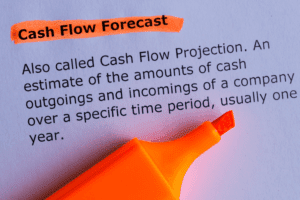
Any CPA you choose to look over your records is required by professional standards to issue you one of three different reports. Before any work is performed, your association will decide on what report they would like to be conducted. Depending on the size, scope, and complexity of your association, there will be a type of report best suited for your HOA.
- HOAs often allocate an average of 5% to 10% of their budget for professional accounting software, showcasing the importance of technology in maintaining accurate and efficient financial records.
- As discussed, an audit provides the highest level of assurance and is intended to provide the user a reasonable comfort level on the financial statement accuracy.
- The board’s role in financial management can vary depending on whether the association has a management company, the size of the community, and the association’s bylaws.
- When in doubt, seeking expert advice from an accountant experienced in HOA management can be beneficial.
- They consist of testing, examining financial accounts along with management inquiry and analytical procedures.
- It also removes the need to take time out of community volunteers’ busy schedules.
#5: Keep Communication with Boards Clear and Consistent
The choice between cash basis and accrual basis accounting will significantly impact your HOA’s financial management. Therefore, it’s crucial to consider the specific needs and circumstances of your association. When in doubt, seeking expert advice from an accountant experienced in HOA management can be beneficial. Some have their own laws that dictate what homeowners associations can and can’t use.
Professional Financial Management for Homeowner Association (HOA) & Condo Accounting & Remote Services
Transparent communication with homeowners is key to building and maintaining trust and accountability within the community. Board members should regularly update residents on the association’s financial status, budgetary decisions, and any potential assessments, soliciting feedback and input when appropriate. To prevent these issues, the board should establish and adhere to a realistic budget that accurately reflects the association’s income and expenses. The board should engage in long-term financial planning to anticipate future expenses and ensure the financial sustainability of the community. This may involve conducting reserve studies to assess the future funding needs for major repairs and replacements and developing strategies to address them. When the Board does all the financial management work by themselves, it gives an illusion of better control than having an outside company do the financial management – but it is just that – an illusion.
- The same is true for your financial statements, meeting minutes, and many other vital documents.
- Audits can be expensive, usually costing between $4,000 to $6,000, which is why many HOAs prefer to conduct yearly financial reviews instead.
- Like the Cash Basis, this method can only be used for interim or unofficial reporting.
- Software that enables a direct link between banks and HOA boards is an important trait to look for, because of the amount of manual work it saves.
- Timely reports also help them effectively allocate funds for projects and maintenance.
What If a Homeowner Goes Bankrupt?
The HOA board is ultimately responsible for maintaining community standards, but board members often hire an outside association management company to be the rule enforcer. The management company will likely be charged with visiting the community to monitor compliance, sending notices to homeowners in violation, and assessing and collecting fines. Learn everything you need to know here about HOA financial management — from HOA accounting terms to fidelity bonds to the benefits of association audits.
- Planning an HOA budget can be difficult work, especially if you’ve never done it before.
- This makes it easier to issue warnings and follow up with potential citations or liens.
- Effectively managing these financial responsibilities requires a proactive, knowledgeable, and strategic approach from the HOA board.
- Board members are encouraged to be transparent about all relevant financial transactions, and be open about results and outcomes, even if they aren’t all positive.
- These all-in-one software platforms allow HOAs to create branded public-facing tools that increase trust in their organizations.
- In the hands of someone without accounting experience, however, even simple financial statements can contain errors.
HOA Support Services + Ongoing Resources
However, you don’t need a background as a CPA or a financial expert to implement these policies for your association management business and your clients. With these best practices, you’ll be able to streamline all aspects of financial management for your client’s HOA. Most states have laws requiring non-profit organizations like community associations to https://www.bookstime.com/ keep comprehensive financial records and report them regularly to their Secretary of State or equivalent state department. If an HOA does not comply with state and local regulations by submitting accounting reports, it could have its “good standing” certificate revoked. The board may opt to hire an accountant to maintain the books and prepare the reports.
The HOA Board Member’s Handbook.

It doesn’t hurt to see if they are in a position to offer discounts or deals to long-term clients, but if you don’t ask, they probably won’t bring it up. By communicating regularly with vendors, you won’t be surprised if service prices increase. The board will also have an opportunity to look for a new service provider if they know in advance that a current partner is increasing their prices.
Communicating with boards is also a key part of any association manager’s job. However, if you have to sift through endless email chains and manually file away sensitive documents, it can be all too simple for some important messages to fall through the cracks. The same is true for your financial statements, meeting minutes, and many other vital documents.
- You must always hire a third party, typically a Certified Public Accountant (CPA), so as to get an outsider’s perspective.
- Financial statements compile all of the association’s important financial information into one document so that the board can easily review it.
- Usually, the third party will be a certified public accountant (CPA) or other financial professional who will check that your records comply with basic accounting principles and verify their accuracy.
- Taking your time and gathering the necessary information is vital to producing an accurate well-formed HOA budget.
- Association funds should be directly deposited into the association’s bank account on a daily basis, and recorded by the receivable department.
There are three accounting methods to choose from — Cash Accounting, Accrual Accounting, and Modified Accrual Accounting. Some community associations even opt to put their financial information on their website to allow homeowners to view it at any time. Of hoa accounting course, not all information needs to be publicly accessible, but you should include everything that can be included. Transparent financial processes help to promote teamwork and positive community relations between homeowners and association board members.

More HOA Board Control

Therefore, they understand how to keep a detailed and correct accounting of records like dues, interest income, loans, deferred revenue, and accounts payable. Costs related to maintenance, insurance, custodial, or utilities will be kept current so that you can analyze and understand your current financial position at any time. Consequently, you’ll have access to top accounting software and a focused HOA accounting bookkeeper who can provide you with several different options and plans. These plans will help your company achieve any short or long-term goals you have with the community.


0 responses on "HOA Audit: The Complete Guide for 2021 Step by Step »"